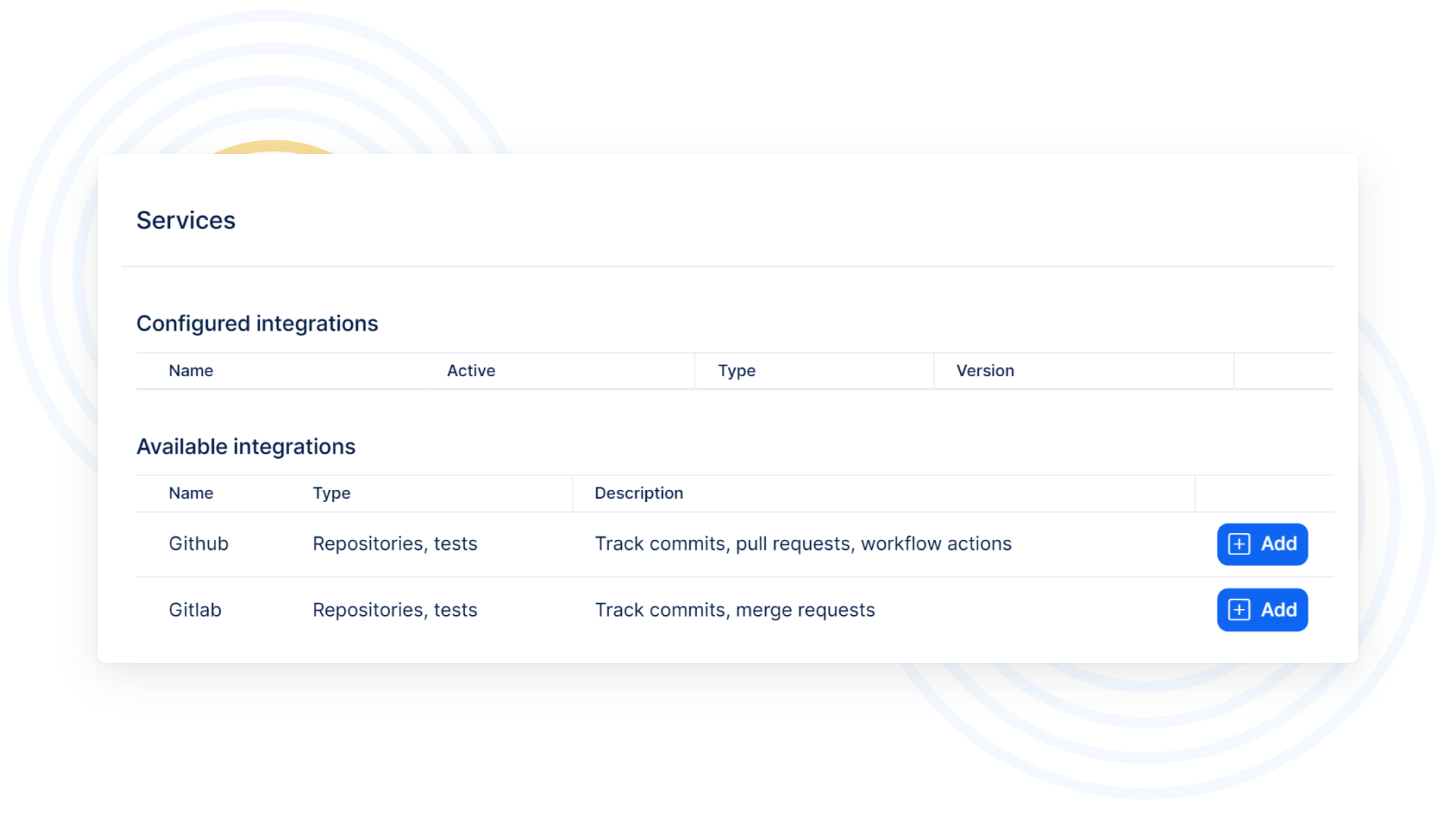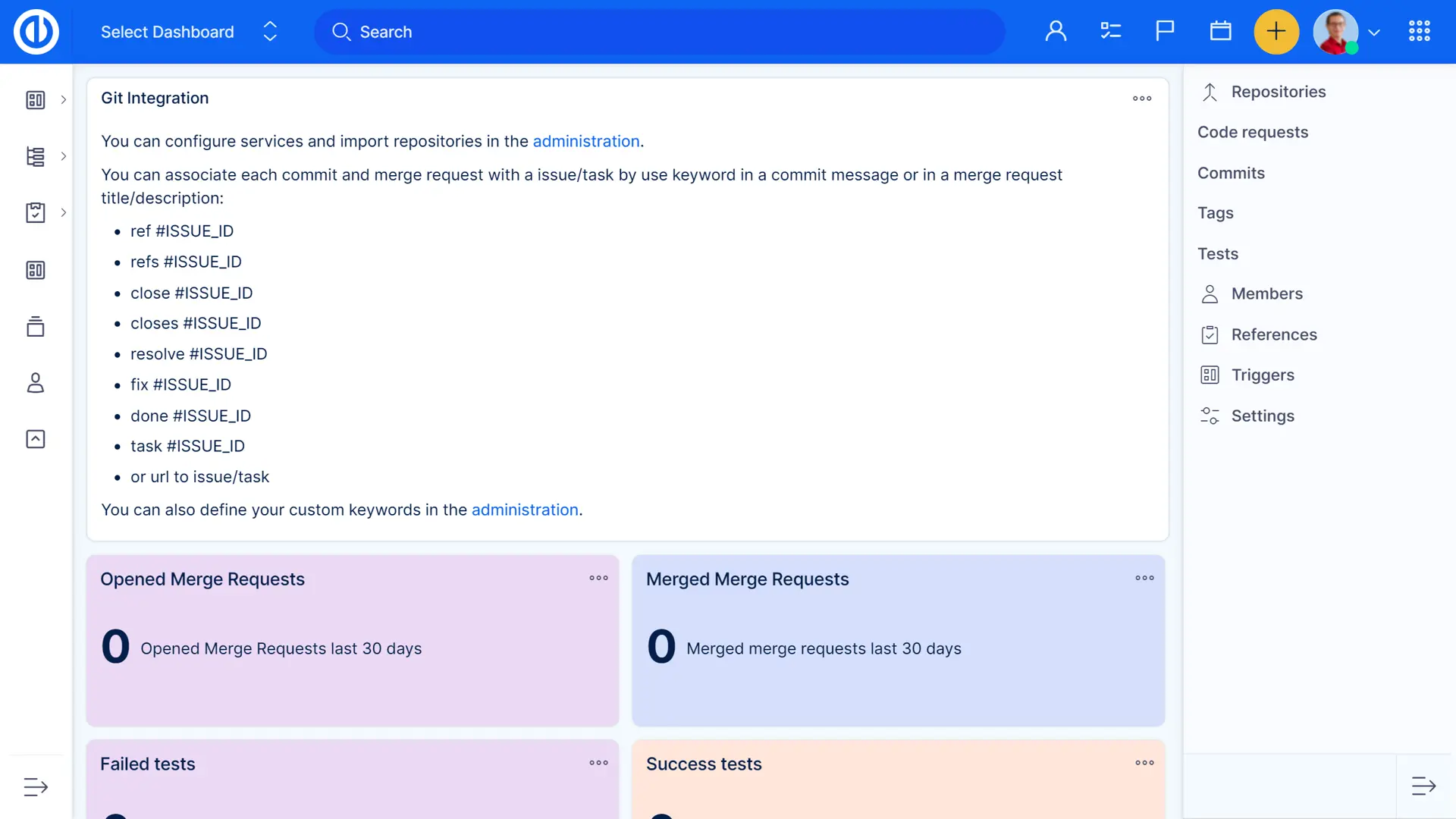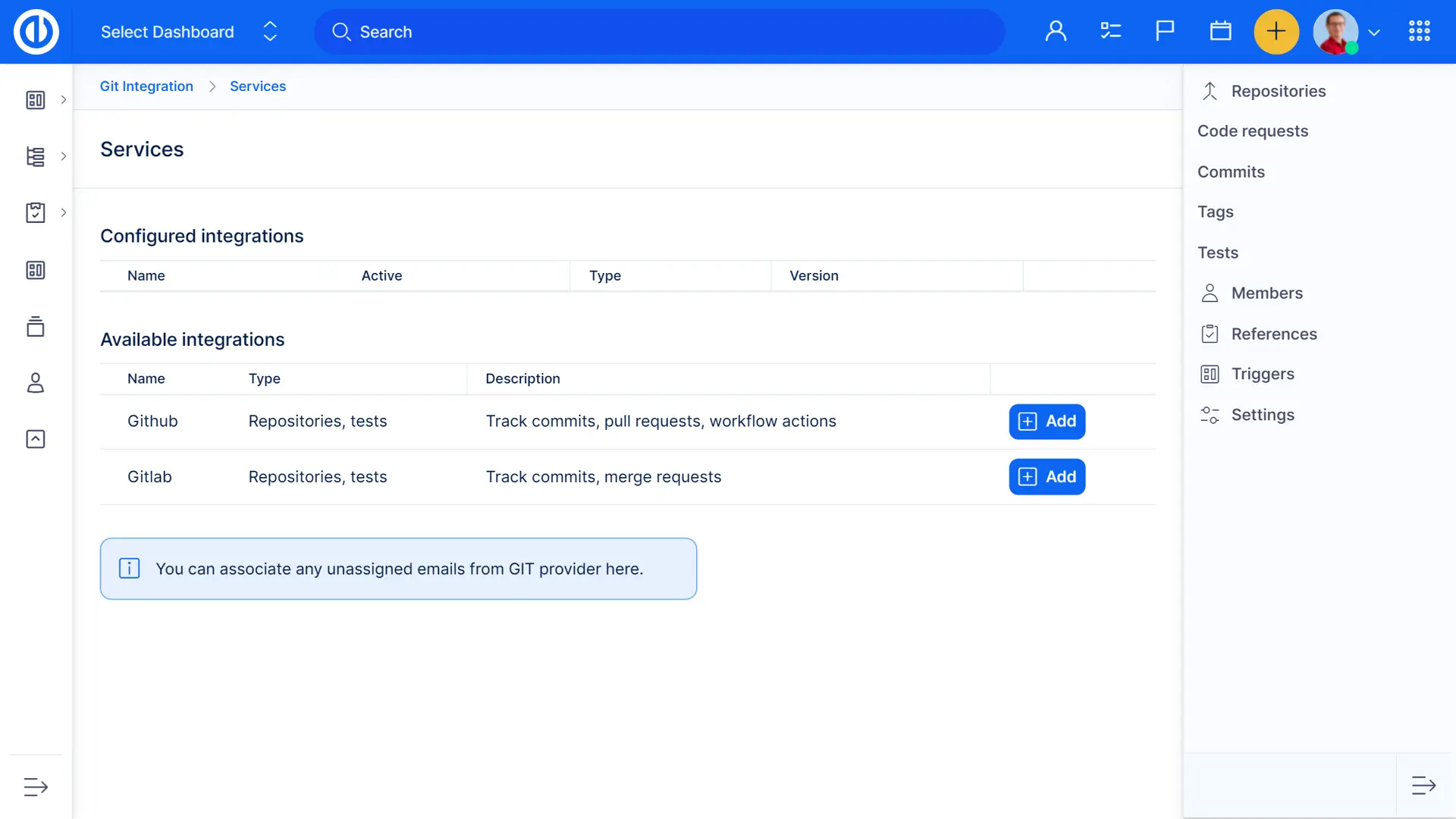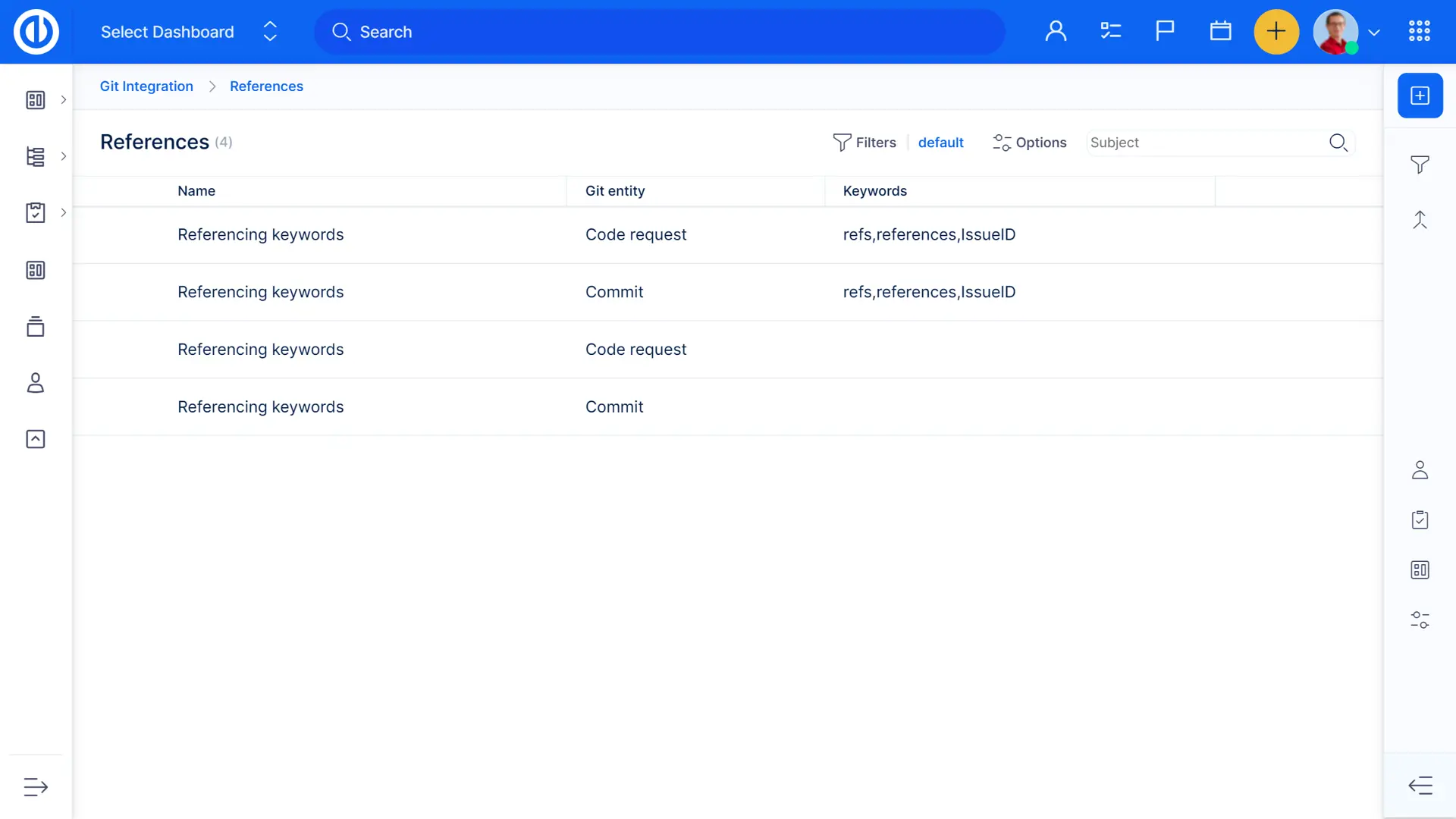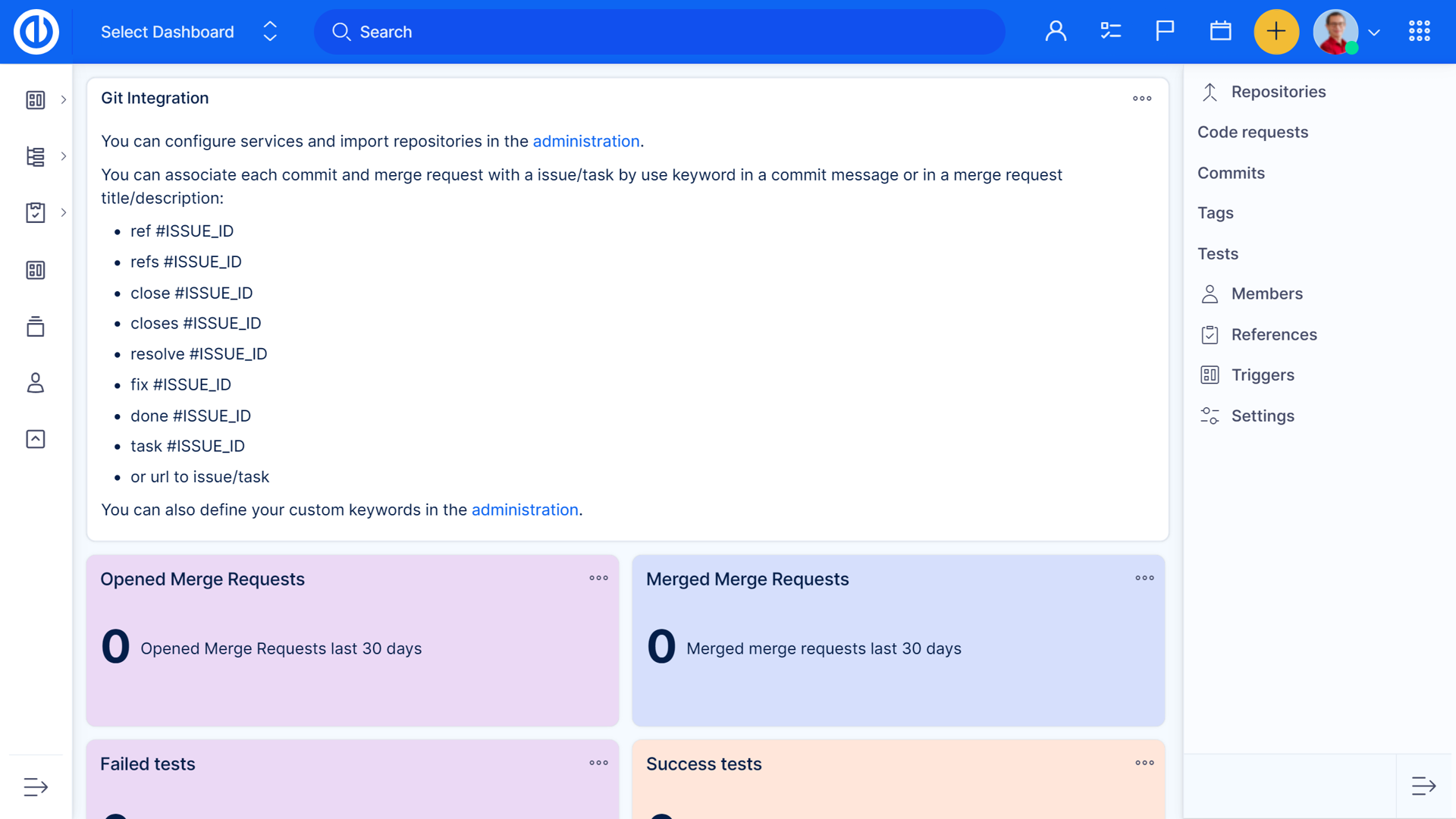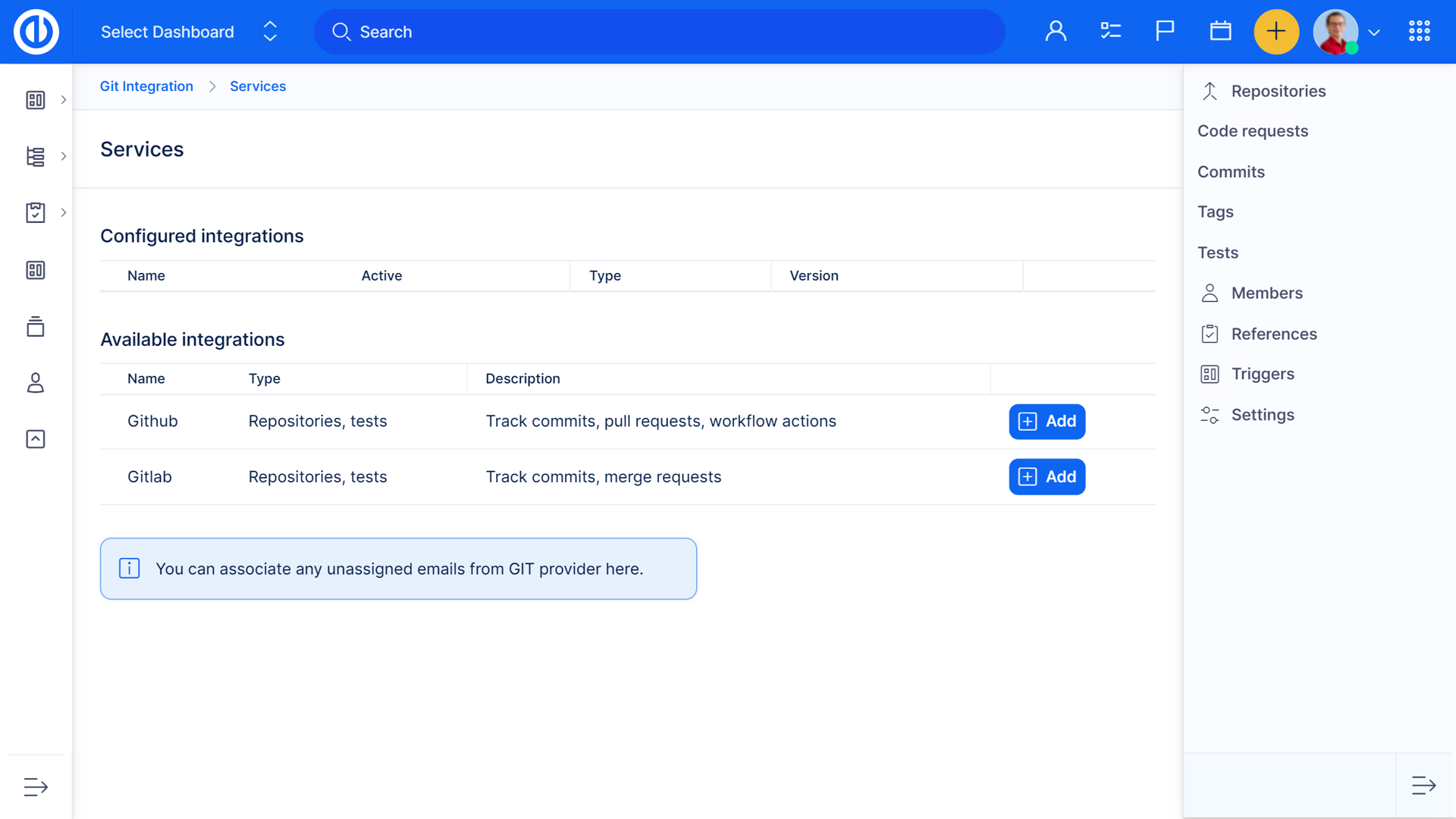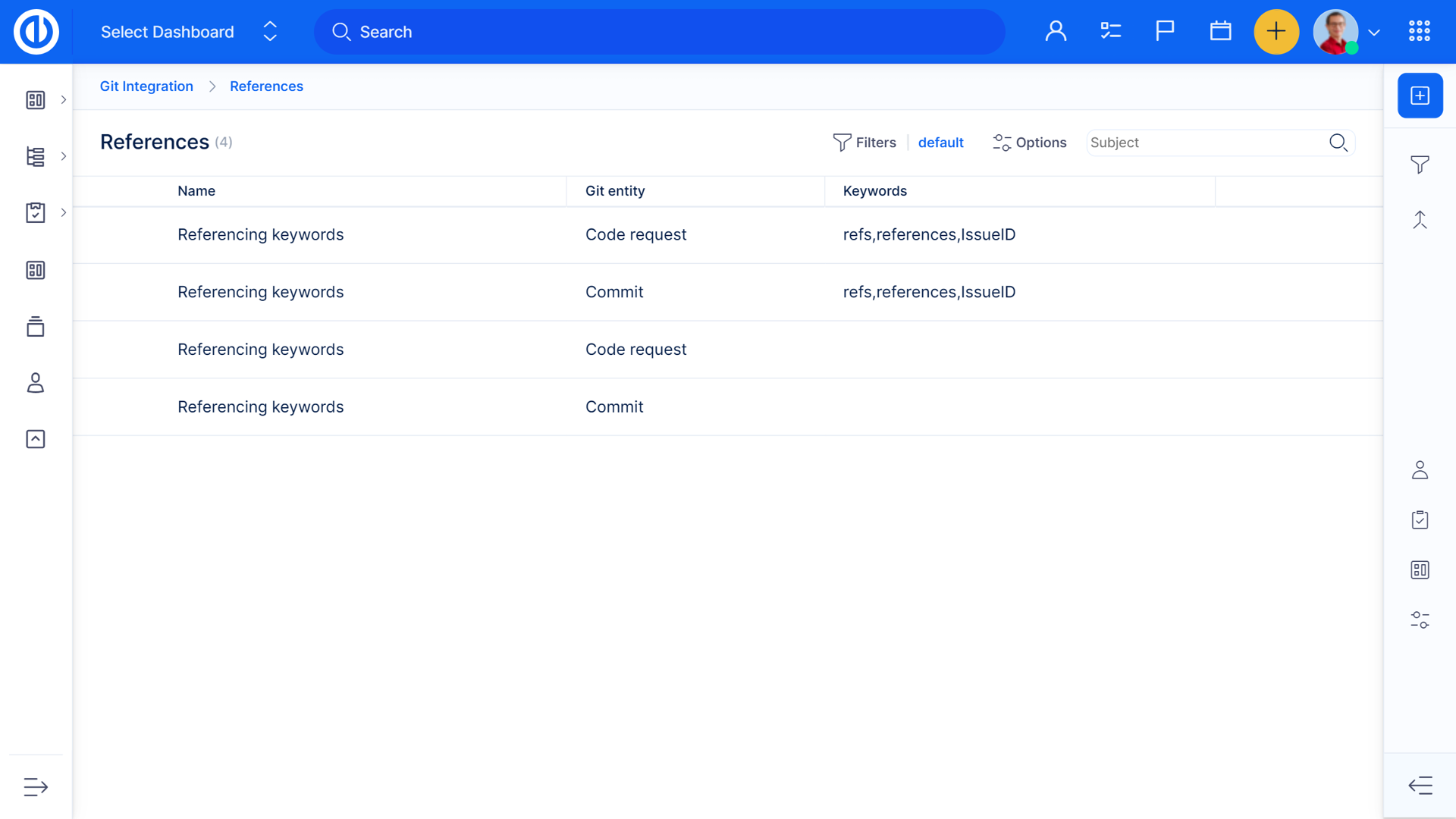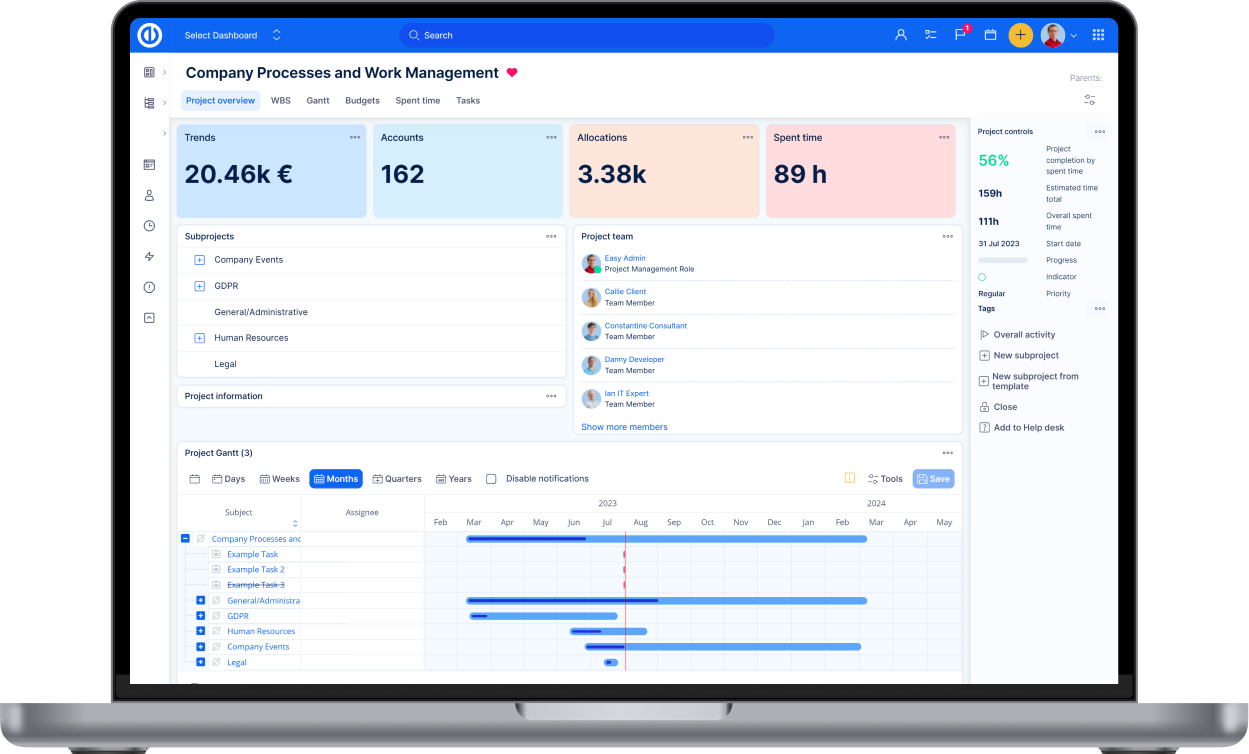Key features of GitHub integration with Easy Redmine:
- Data aggregation: The integration aggregates important data from GitHub, such as repositories, pull requests, commits, and tests, into Easy Redmine for enhanced reporting and evaluation.
- Webhooks: Automatically configured webhooks in GitHub send updates about new commits, pull requests, and tests directly to Easy Redmine, ensuring that the project management tool is always up-to-date with the latest information.
- Task linking: Link specific commits or pull requests to individual tasks in Easy Redmine using referencing keywords, which helps track progress and log time without needing to switch between platforms.
- User mapping: The integration maps user attributes from GitHub to Easy Redmine, allowing for accurate tracking of time spent on tasks by individual team members.
- Dynamic dashboards: Create customizable dashboards within Easy Redmine to monitor various development-related KPIs across projects and teams.
